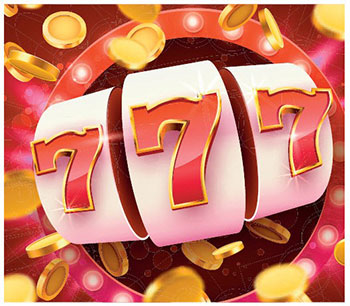DON’T BELIEVE THE HYPE
It’s due, Isn’t it?
By Frank Scoblete
 On the excellent “The Joe Rogan Experience” podcast, famous scientist Neil deGrasse Tyson told an interesting story about a bunch of physicists who went to Vegas for a conference when their hotel lost their reservations. Oh, my word! Instead of being out in the cold (or the heat), a casino-hotel in Vegas offered them rooms and told them to hold their conference at the casino-hotel. That was very nice of that hotel. But the physicists were not so nice to that hotel because that week was the worst week that particular casino had all year. The physicists ruined the casino’s bottom line. It was a negative big bang, you might say.
On the excellent “The Joe Rogan Experience” podcast, famous scientist Neil deGrasse Tyson told an interesting story about a bunch of physicists who went to Vegas for a conference when their hotel lost their reservations. Oh, my word! Instead of being out in the cold (or the heat), a casino-hotel in Vegas offered them rooms and told them to hold their conference at the casino-hotel. That was very nice of that hotel. But the physicists were not so nice to that hotel because that week was the worst week that particular casino had all year. The physicists ruined the casino’s bottom line. It was a negative big bang, you might say.
What did the physicists do to cause the casino to have such a thoroughly rotten week? Did they have some amazing scientific way to beat casino games and slot machines that have clear edges for the casinos that we non-scientific mortals did not know about? Was that the secret?
Tyson made the point in a strong manner that gamblers fall for a fake concept, that “something is due” when in fact nothing is due. He stated definitively that “nothing is due” at casino games and slot machines. And don’t think “being due” is a real thing.
The games are based on randomness and therefore there is no overwhelming pattern that can be found at roulette, or craps, or slot machines that can be predicted to give the players a win.
The “due” idea is a “don’t” in the real scheme of things.
[Please note: In blackjack, if a player counts cards and knows the composition of the unplayed cards, then something is due—at least due in general. That game is the exception for that small group of card- counting advantage players. Video poker players can know what cards remain but knowing that can’t really help them beat the game’s edge over them.]
Human beings have a tendency to project “agency” on the part of nature’s events as if that “agency” is preplanning what is to happen. In games of chance, where randomness is the key ingredient, nothing can be predicated except in probability terms.
For example, roulette has 38 pockets where the ball can land and stay, as opposed to jump out of it. No one can predict what pocket that can be, except if their guess gets lucky. But luck can’t be counted on.
The chance of that same thing happening on the next spin of the wheel is one in 38. The chance it will happen in the spin after that is one in 38. The next spin? One in 38. Every spin after that? Again, one in 38.
Yes, a few or many pockets will hit in any length of time at the game. But no one knows which pocket will be the winning pocket, unless, as I said, the players have good luck.
The same holds true for craps, baccarat, mini-baccarat and all other casino games. Again, the idea that something is due is a don’t.
What About Slot Machines? Aren’t They Programmed?
Slot machines are indeed programmed. And what have the brilliant computer designers used to program them? Take a deep breath my friends…it’s called the random number generator (or RNG). (Yes, random is as random does, even for those beloved slot machines that the majority of casino players love to challenge.)
That generator is working all the time picking random numbers (sequences) that correspond to the slot machines’ symbols. Nothing more, nothing less. It is not thinking and planning something such as this: “Gee, Sally is getting creamed today. I’m going to give her the winning jackpot to make her feel better.”
Lady Luck? Dame Fortune? Santa Claus?
Don’t get upset now but there are no such supernatural beings as Lady Luck or her sister Dame Fortune extending their favors to casino players. There is no Santa “Slot” Claus when it comes to casino games. What happens, happens, without any conscious agency behind it. Nothing is due and nothing is making something due. That is a fact; a sad fact for many casino players, but a fact nevertheless.
Players who know probability in random games are fully aware of that situation.
Just because all those physicists did not play the games when they visited the casino, well, that was their choice. Some casino players, maybe most, know that randomness is the key behind why the casinos win at the games.
The casinos then short-pay the players when the players win or the game actually has the casino win more decisions. Craps has both of these methods.
There is no getting around the facts of casino play. The casinos aren’t being evil in offering games where they win. A store isn’t being evil when it charges a customer for its products. The casinos’ products are primarily its games. We choose to play them or, like those physicists, we choose not to play them. That’s our call.
“Yes, random is as random does, even for those beloved slot machines that the majority of casino players love to challenge.”
All the best in and out of the casinos!
Frank Scoblete’s website is www.frankscoblete.com. His books are available from Amazon.com, Barnes and Noble, Kindle, e-books, libraries and bookstores.


